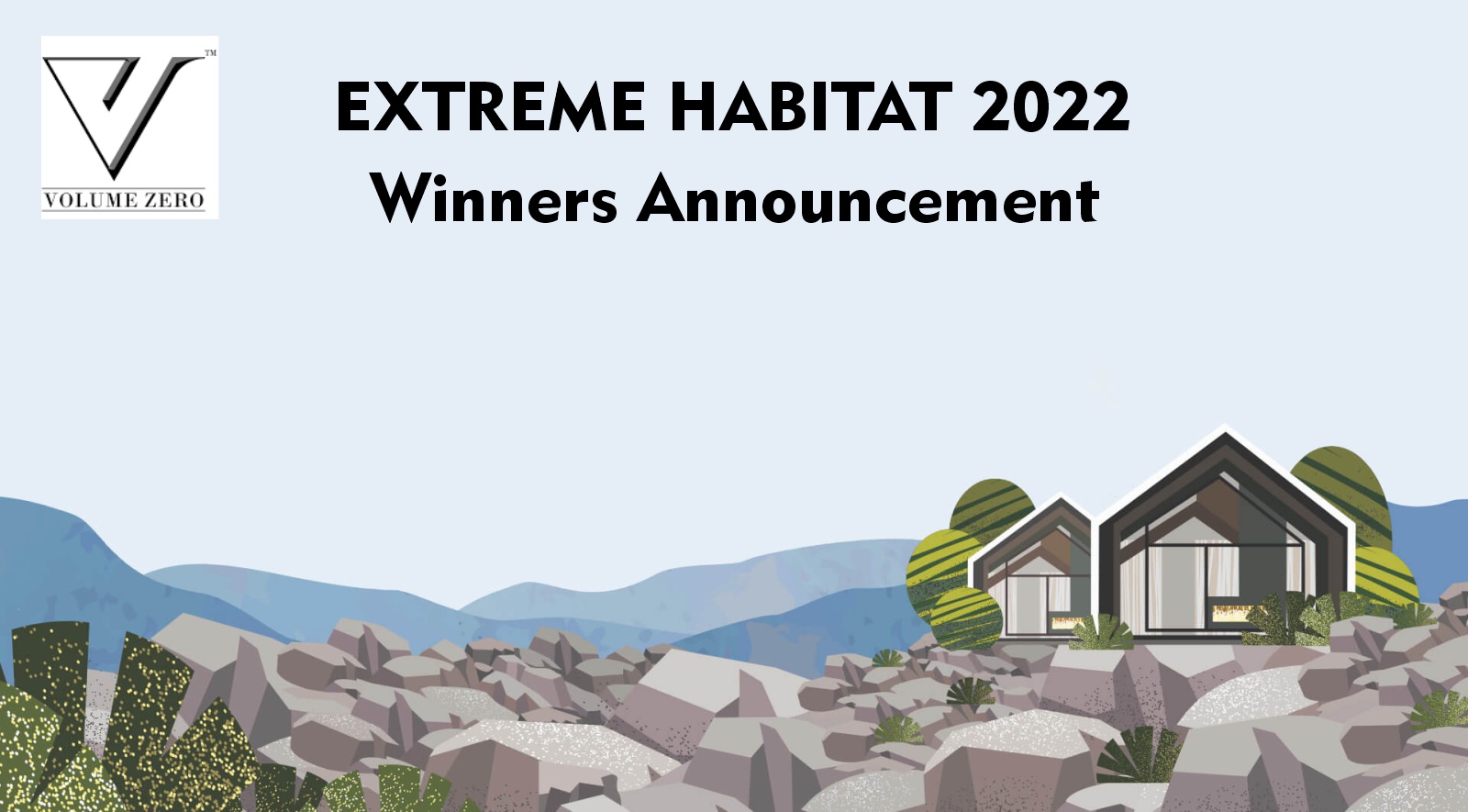Extreme Habitat 2022, challenged participants to explore site conditions and aspects wherein human inhabitation could get difficult to sustain. These design proposals are considered modern technological advancements in architecture to make the house adaptive to its surroundings, thus making it a comfortable home by eliminating any types of hazards. The winning proposals vary from sustainable and off-the-grid solutions to recycled-materials habitation. Source and images Courtesy of Volume Zero.
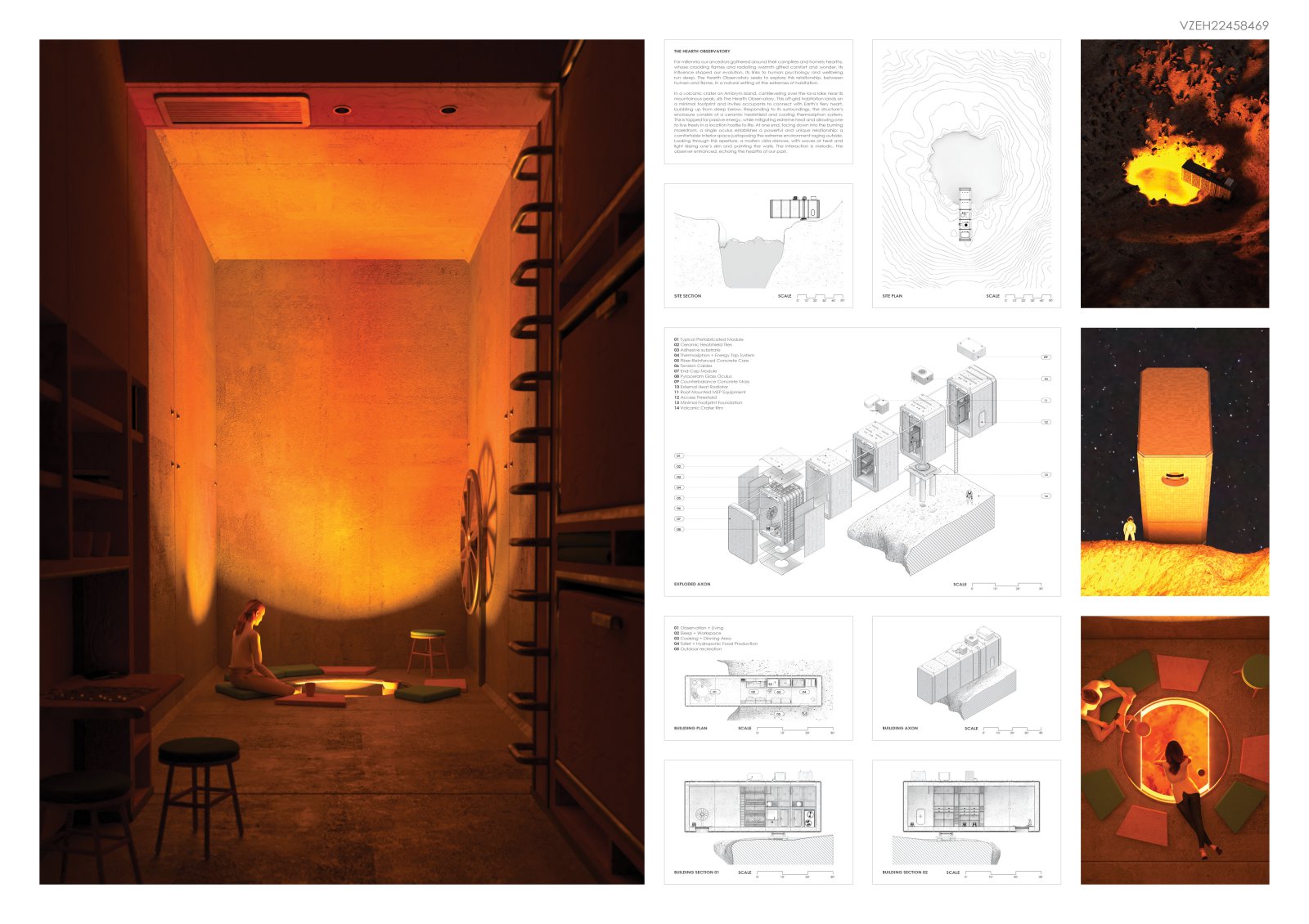
First Place: The Hearth Observatory by Jordan Lutren – Waylon Richmond
Our ancestors gathered around their campfires and homely hearths for millennia, whose crackling flames and radiating warmth gifted comfort and wonder. Its Influence shaped our evolution, Its triks to human psychology and well-being run deep. The Hearth Observatory seeks to explore this relationship, between humans and flame. In a natural setting at the extremes of habilitation.
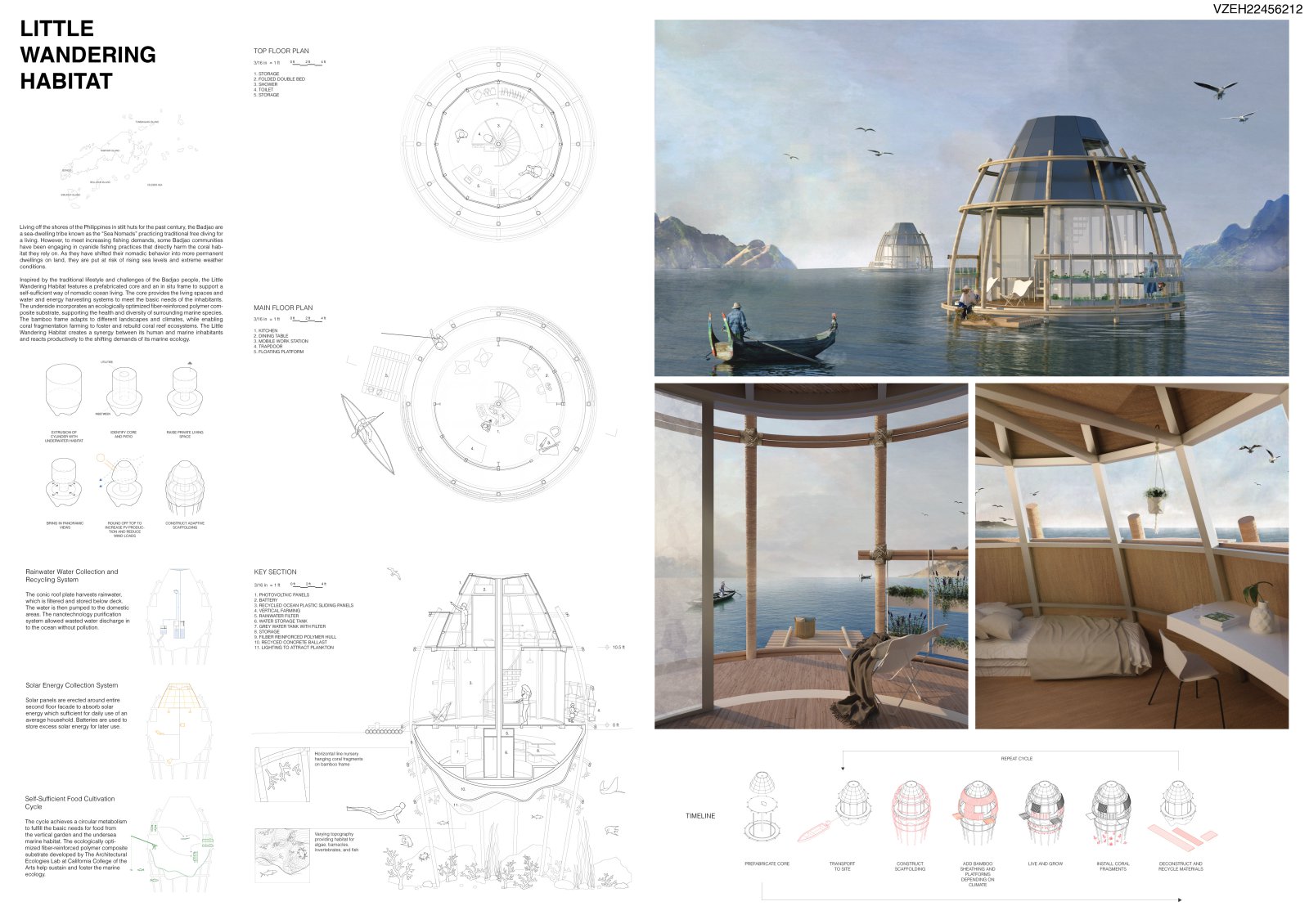
Second Place: Little Wandering Habitat by Tony Liu – Ann Ren
Living off the shores of the Philippines in stilt huts for the past century, the Badjao are a sea-dwelling tribe known as the “Sea Nomads” practicing traditional free diving for a living. However, to meet increasing fishing demands, some Badjao communities have been engaging in cyanide fishing practices that directly harm the coral habitat they rely on. As they have shifted their nomadic behavior into more permanent dwellings on land, they are put at risk of rising sea levels and extreme weather conditions.

Third Place: Kharghar by Darshan Lineswala – Shreyash Gupta – Sarthak Mohanty
Little Rann of Kutch in Gujarat, India is home to the Agartyas-Sat Farmers of India who produce 75% of the salt in the world’s 3 largest salt-producing countries. A harsh yet breathtaking story of a community living in extreme poverty and an unimaginable situation. This is an attempt to make their lives more livable through architectural intervention.
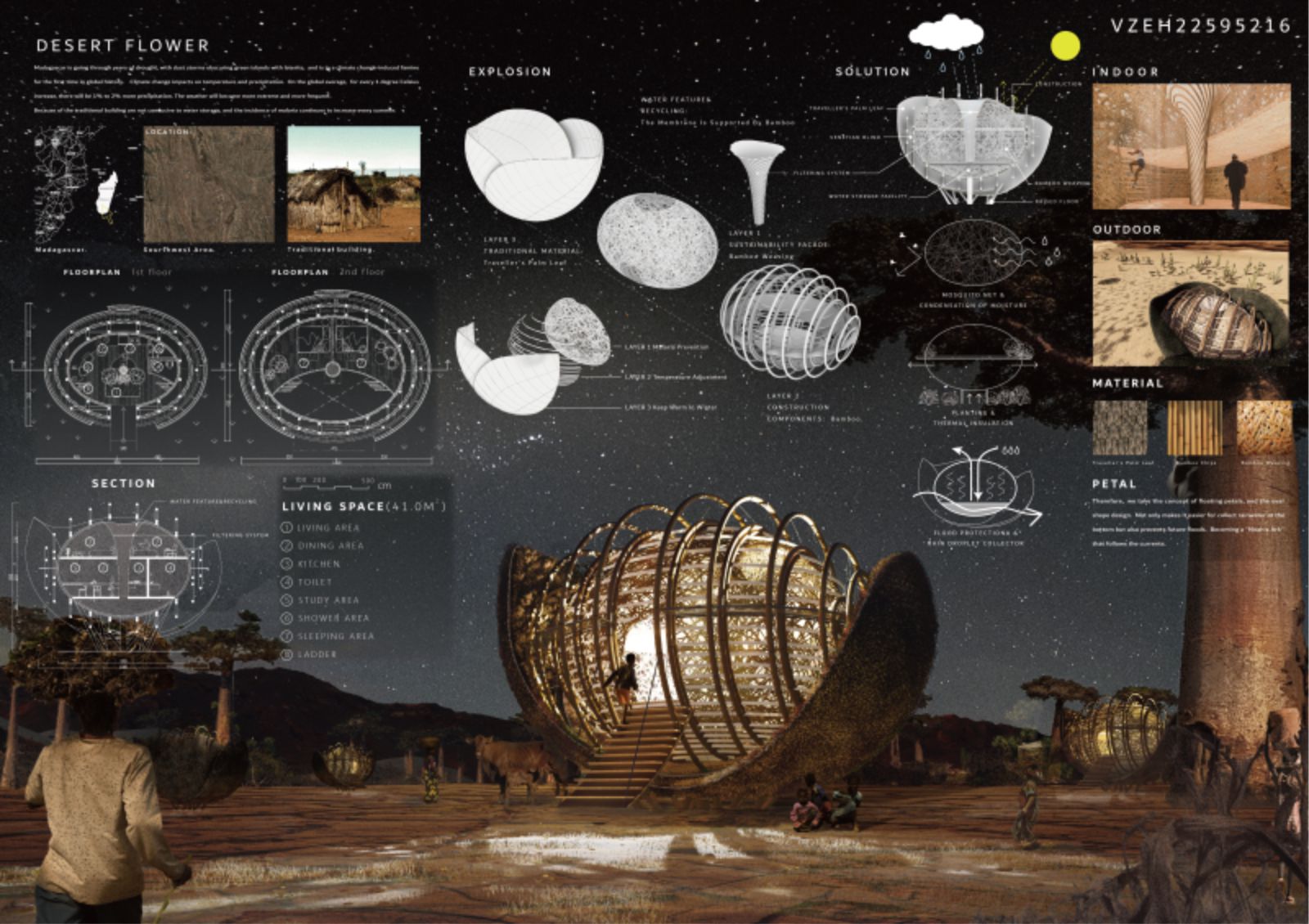
Best Student Award: Desert Flower by Ning Xin Cheng – LU WAN TING
Madagascar is going through years of drought, with dust storms obscuring green islands with laterite, and is in a climate change-induced famine for the first time in global history. Climate change impacts temperature and precipitation.
On the global average, for every 1-degree Celsius increase, there will be 1% to 2% more precipitation. The weather will become more extreme and more frequent. Because the traditional buildings are not conducive to water storage, the incidence of malaria continues to increase every summer.
Honorable Mentions:

Extreme Viewfinder by Modeston Ma

The Growing House Revisited by Evie – Chengxuan Li
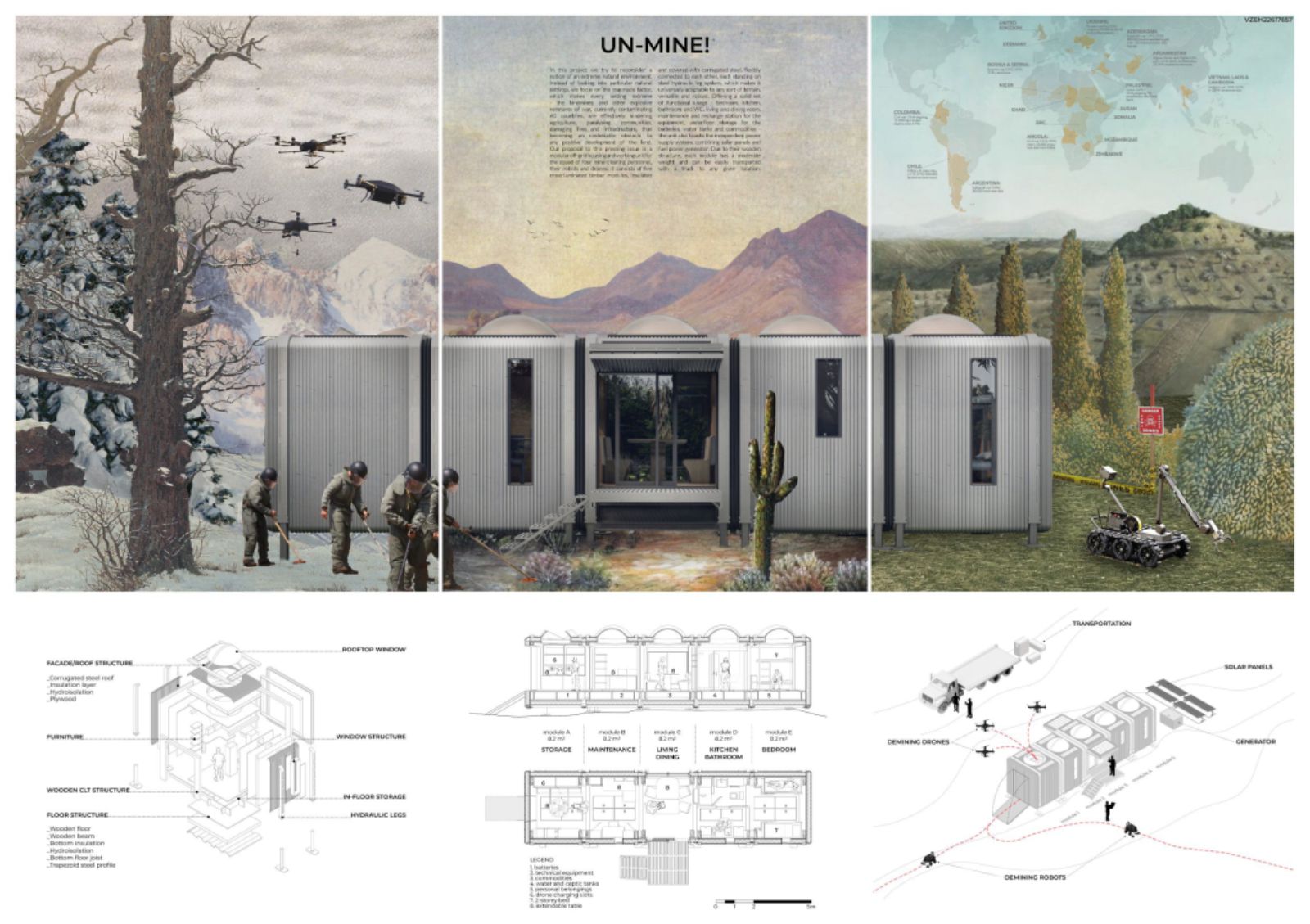
Unmine by Teymur Osmanov – Lala Iskandarli – Dmitry Puzatov

House of the Mistral by Sherman Lo Shui Fung – Wu Wan Sheung – Chi Chau Hang Frankie
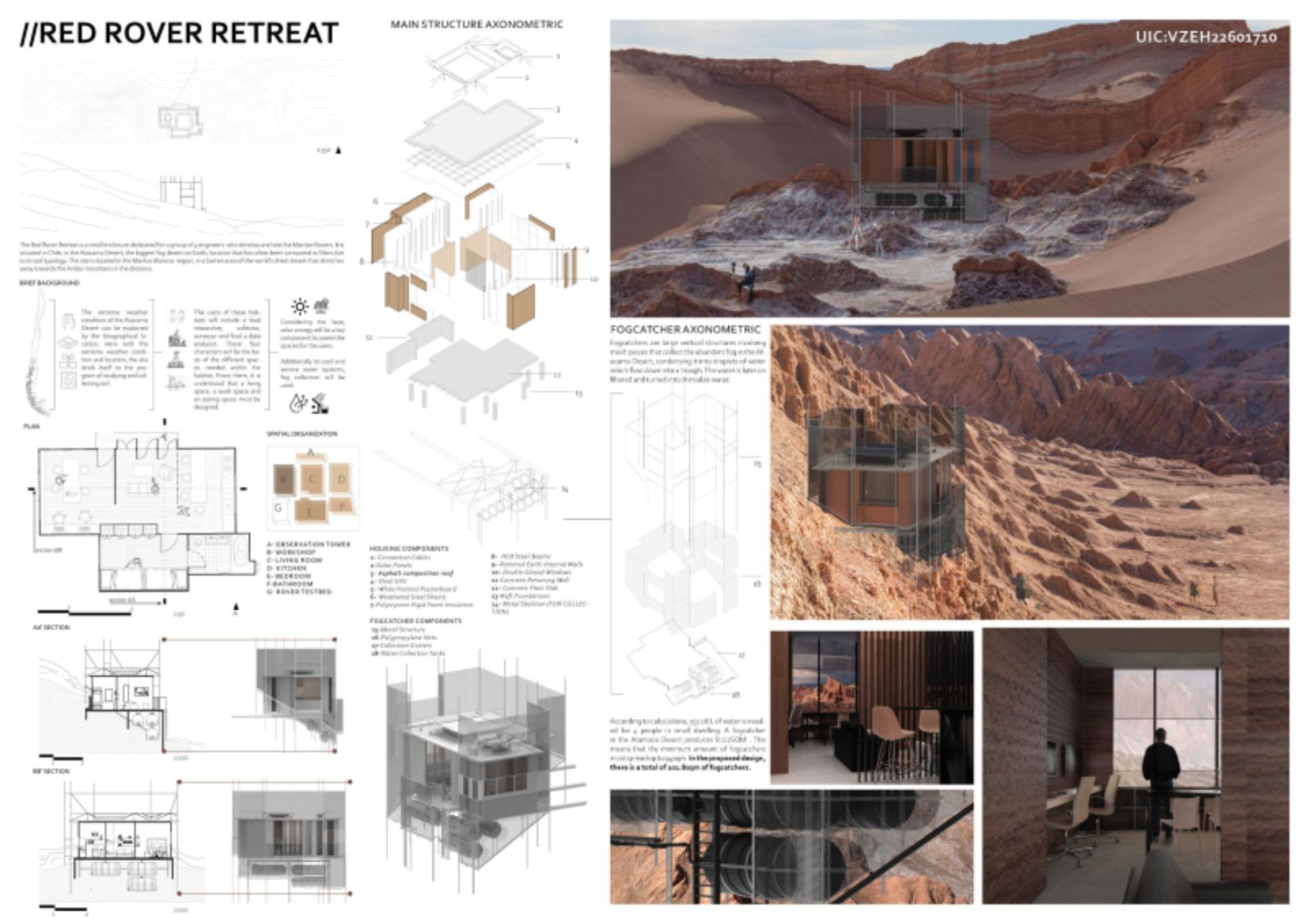
Red Rover Retreat by Annika Siamwalla – Hui Shan Lo – Ilinca Stanescu

Para Box 1.0 by Ainna Sabri

Freezing the Arctic by TEAM F.A.R. – Suhail Rehmani – Bramjot Singh

Deep Lab by Roumieu Marius

Hestia by Riccardo Caivano
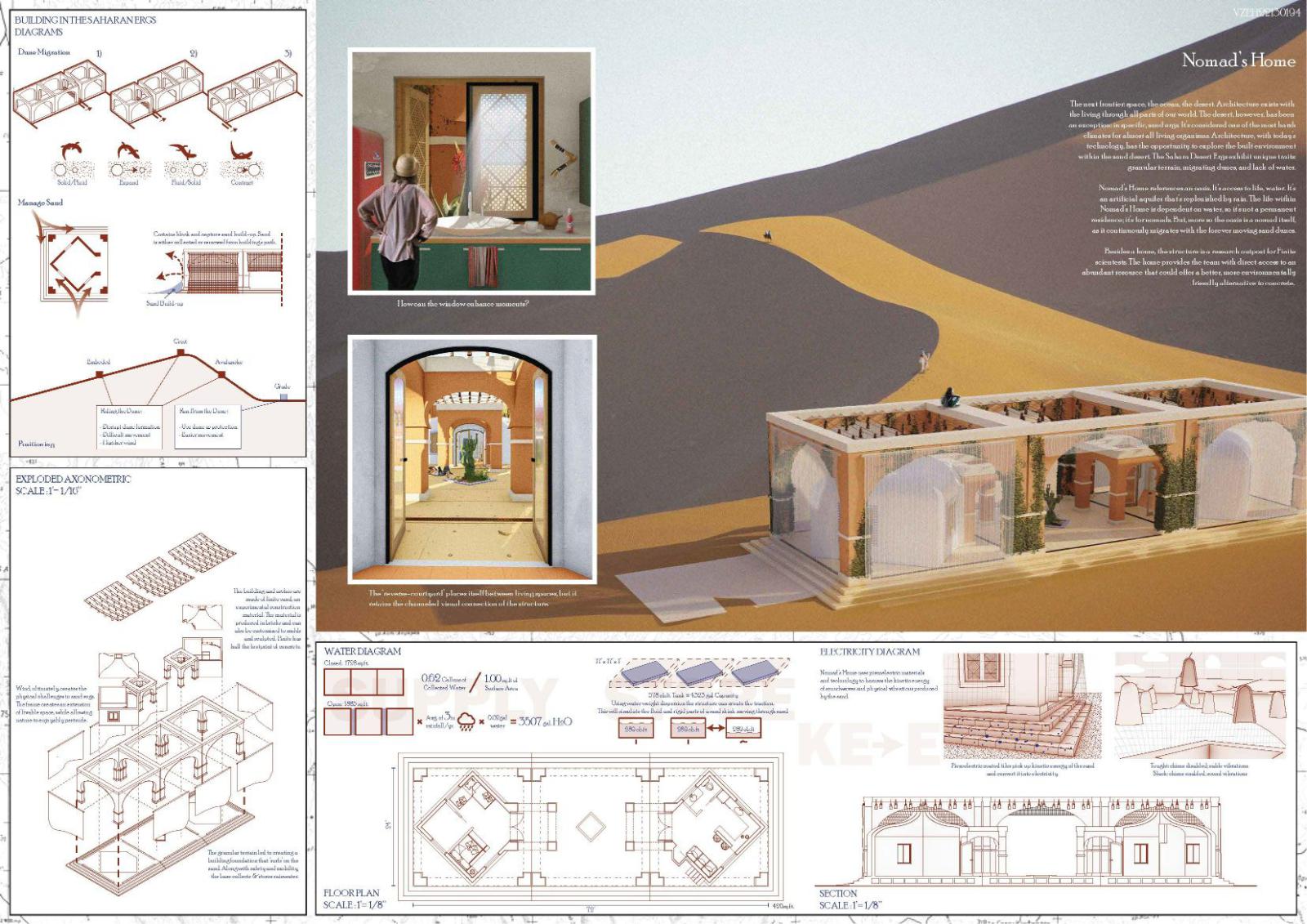
Nomad’s Home by Harry Zaye

